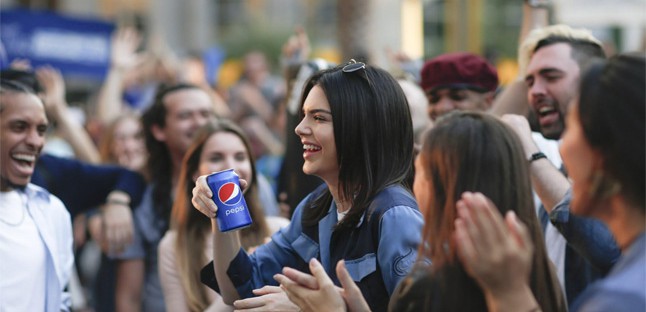Latest posts
What’s going on at parkrun?
Virtue-signalling all the way to the bank
Bud Light: brand purpose or virtue-signalling?
The Coddling of the American Mind, by Greg Lukianoff and Jonathan Haidt
Belonging, by Owen Eastwood
Such a simple thing
The Long Win, and The Scout Mindset
The Cult of We by Eliot Brown and Maureen Farrell
Coffee and covid modelling
John Lewis: so right-on it’s wrong
By theme
Marketing strategy
Insight & metrics
Innovation & inspiration
Brand & positioning
Marketing communications
Business purpose
Leadership
By industry sector
Financial services
Retail
FMCG
Technology & start-ups
Consumer services
Business to business
Other sectors
By type
Books
Comment
Quotes
Thought leadership
Airbnb’s “We accept” spot during the Superbowl and Lyft’s $1m donation to the American Civil Liberties Union were among several pro-immigration responses from brands after President Trump’s travel ban was announced. UK fashion retailer Jigsaw launched its Autumn Winter 17 range with ads saying “Jigsaw loves immigration”. Mainstream brands like Aviva, Target and Verizon are big on supporting Pride and LGBTQ rights. Others talk about mental health at work. The Marketing Society promotes these agendas as if they are the only marketing strategy you need.
These are important social issues that play out in the workplace. Businesses need to have clear policies, and some people, especially employees and investors, want to know where they stand. But for the most part customers don’t care. This is not marketing.
But shouldn’t brands use their reach, their budgets and their influence for good? Yes, and there are many ways to do this, not all of them with that unflattering bandwagon look. It’s risky, too. Unless the brand is living the values it will emerge as inauthentic. It’s not just the glaringly obvious gaffes like Pepsi’s with Kendall Jenner. Some say that Airbnb is contributing to making life miserable for many social housing tenants who find themselves living next to party flats in big cities because it won’t cooperate with councils to reduce illegal and frequent subletting. Yet the affected tenants may well be the poor, recently-arrived people Airbnb’s inclusive stance purports to embrace. Paperchase ended up looking totally unprincipled recently when it denounced its chosen promotional partner, the Daily Mail, in the face of criticism of the Mail’s politics, which were surely not a surprise revelation.
Brands are a shorthand for a set of values, sure, but first they’re a signal of an offer, something that fulfils a purpose. That purpose is usually mundane and personal. It’s fashionable to reach for a world-changing purpose, but that’s no substitute for meeting a consumer need. Brands can have both but relying on the altruistic one is for charities and other “good causes”. The rest of the world wants something for their money. Employees want to know their work is worthwhile but that can be about little things that are helpful or enjoyable – it doesn?t have to be changing the world. Besides, satisfaction at work comes in many forms, with simple recognition perhaps the most important. People leave bad bosses more than bad jobs.
In these turbulent times it’s worth remembering that virtue-signalling brands are nothing new. Likewise brands that try to shock – think Benetton – or to campaign on political issues. It works when brands choose their own agenda, and set it out proactively. Cosmetics retailer Lush got into trouble this year for its spy cops campaign, which really has nothing to do with its products. Contrast that with The Body Shop, which was driven by issues of sustainability and fairness forty years ago. It was built into their sourcing, product development and distribution practices, not just a few radical tweets and ads. This was true brand activism, and it has lasted. The outdoor brand Patagonia encourages people to repair their garments rather than replace them; it has earned the right to comment on environmental issues, sometimes very boldly. By contrast, the new wave of brand activism seems to be about ensuring the brand is not open to criticism by failing to endorse social issues. As we saw with Paperchase, this can really get your wrapping paper in a twist, because there’s no pleasing everyone.
“There’s no pleasing everyone” is of course a sound starting point for any brand to position itself and create a marketing strategy. It’s the basis of market segmentation, which is still a marketer’s best friend. A brand that is confident of its target market and how it is relevant to them doesn’t have to worry about other people. Focus and consistency will win out over virtue-signalling in the long run.
Latest posts
What’s going on at parkrun?
Virtue-signalling all the way to the bank
Bud Light: brand purpose or virtue-signalling?
The Coddling of the American Mind, by Greg Lukianoff and Jonathan Haidt
Belonging, by Owen Eastwood
Such a simple thing
The Long Win, and The Scout Mindset
The Cult of We by Eliot Brown and Maureen Farrell
Coffee and covid modelling
John Lewis: so right-on it’s wrong
By theme
Marketing strategy
Insight & metrics
Innovation & inspiration
Brand & positioning
Marketing communications
Business purpose
Leadership
By industry sector
Financial services
Retail
FMCG
Technology & start-ups
Consumer services
Business to business
Other sectors
By type
Books
Comment
Quotes
Thought leadership
